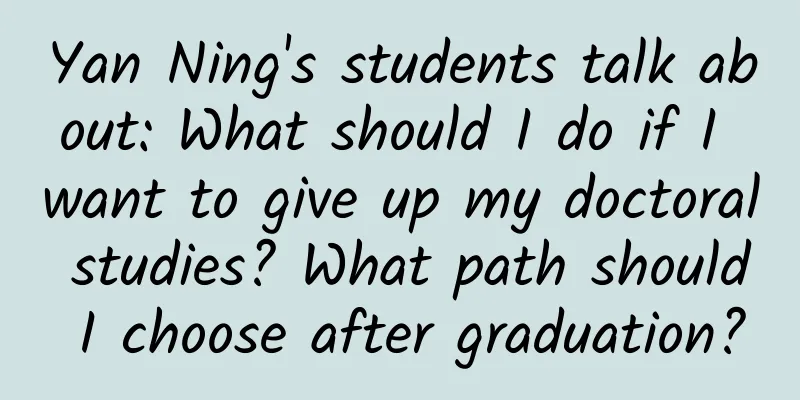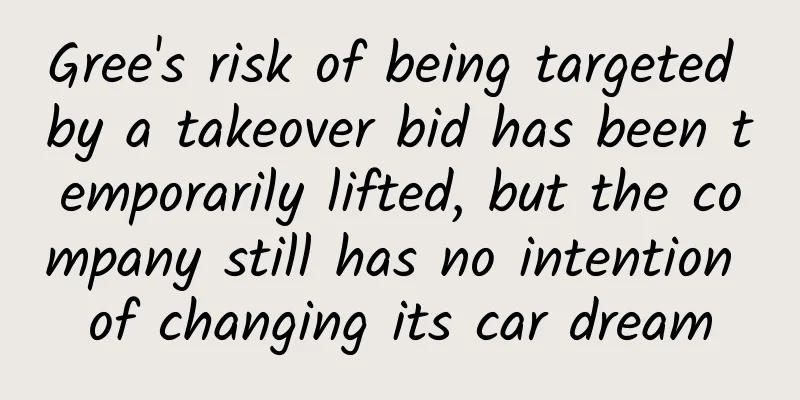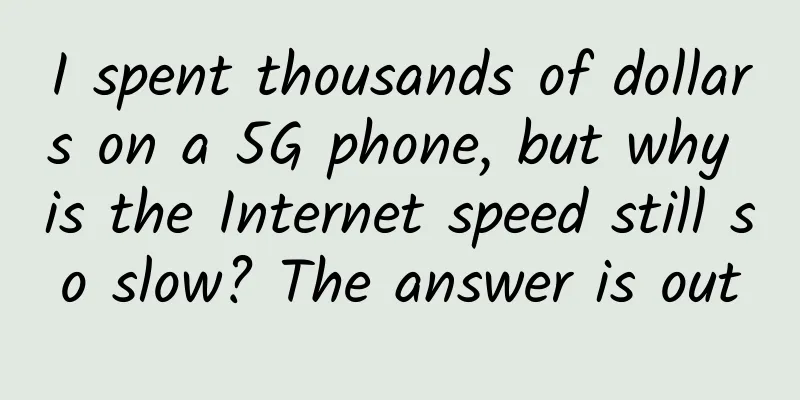Yan Ning's students talk about: What should I do if I want to give up my doctoral studies? What path should I choose after graduation?

|
The Women in Science Forum is now in its seventh year. Seven years ago, the forum's initiator, structural biologist Professor Yan Ning, wrote an article asking: "Where have the female scientists gone?" In the field of scientific research, there has long been a "scissor-shaped distribution" of gender career curves, where "the more senior the scientific research position, the lower the proportion of women." No matter what stage a woman's career develops to, it is impossible to escape the reality of the huge overall career gap between the sexes. Over the past seven years, more and more people have paid attention to gender inequality in the scientific community, and the proportion of female researchers has slowly increased. Where do all the women who have completed their doctoral and postdoctoral studies go? This year, Professor Yan Ning, editor-in-chief of Fanpu, invited nine female graduate students and postdoctoral students who have graduated from her laboratory to come to the forum to share their life stories and thoughts. Last week, we announced the upcoming 7th Women Scientists Forum and collected a large number of questions from readers. These questions generally focus on four aspects: scientific research experience, career choice, gender equality and age anxiety. The forum guests may not be able to provide accurate answers, but the stories they share should inspire everyone's thinking and courage. Fanpu has refined and organized the content of the forum, which will be published in two parts, and a live broadcast replay will be provided at the end of the WeChat official account. WeChat video, Weibo, Zhihu, and Bilibili platforms will also start live broadcast replays simultaneously. Everyone is welcome to watch and enjoy the warm and witty conversations between teachers and students in the laboratory. Arrangement | Idobon My daughter has grown up Yan Ning: I started to establish a laboratory at Tsinghua University in 2007. So far, there are more than 30 graduate students and postdoctoral students who have received training in my laboratory. Of them, 16 are girls, which is 50-50. "My daughter has grown up", where did the girls in my laboratory go later? In fact, it is not like what everyone thinks, that everyone who graduated from Professor Yan's laboratory will continue to be a PI (Editor's note: principal investigator, laboratory head). Everyone's path is different. What makes me particularly happy is that each of these girls who came out of my laboratory - whether they are here today or not - is working hard to be independent and self-reliant. I feel very proud and very gratified! Lu Guifeng, the first student of Yan Ning's laboratory, is known as "Little Sister Lu". In 2008, she was recommended to Yan Ning's laboratory as a direct doctoral student. In the second half of 2011, she decided to switch to a master's degree. In January 2012, she graduated with a master's degree and joined Johnson & Johnson China to do brand management. Three and a half years later, she jumped to Walt Disney to engage in brand strategy planning. In May 2017, she left the foreign company and founded Qingqiao Sunshine Fund on the Xueqiu private equity platform, serving as the manager of Qingqiao Sunshine Fund. Qingqiao Fund mainly focuses on the biopharmaceutical industry and has been running for four and a half years. It currently has two RMB funds and a newly established US dollar fund, with a current scale of more than 300 million. Hao Qi studied for a doctorate in Yan Ning's laboratory from 2009 to 2014, and then worked as a postdoctoral fellow at Rockefeller University for more than two years. After comprehensively considering his personal strengths and interests, he decided to join Calico Life Sciences, an American biotechnology company, to study aging-related diseases, and has been working there for more than four years. He Yuan, who was in the same class as Hao Qi, studied for a doctorate in Yan Ning's laboratory from 2009 to 2014, and worked with Xiao Lu for more than three years. After graduating with a doctorate, he joined Renmin University High School, teaching biology courses, brain-computer interface, artificial intelligence and other courses in the main high school. He has been working for seven or eight years now. He Yuan said: "Being a teacher is a very happy thing." Li Jingxian received his Ph.D. from Professor Yan Ning's laboratory at Tsinghua University in 2015. In the same year, he joined Professor Demet Araç's laboratory at the University of Chicago and has been engaged in structural biology research on adhesion GPCR and related proteins. Pan Xiaojing was a doctoral student in Yan Ning's laboratory from 2011 to 2016, and then worked as a postdoctoral fellow. In 2019, he joined Tsinghua School of Life Sciences as an associate researcher. He is the student who has followed Professor Yan Ning in scientific research for the longest time, and has been engaged in research on ion channels. Wang Nan entered Yan Ning's laboratory at Tsinghua University to pursue a doctorate in 2016. He just graduated in July this year and was named an outstanding graduate of Tsinghua University. He will go to Stanford as a postdoctoral fellow next year. Yan Ning described her encounter with Wang Nan like this: "One summer, someone knocked on the door and said he came by train to talk to me. He really wanted to join my lab, so he left in the afternoon to catch the train. I saw this person, and thought, wow, this person has the same name as a national table tennis player. I knew at first glance that she was a determined person, so I accepted her without saying anything." Yan Zhen joined Yan Ning's laboratory as a postdoctoral fellow in 2016, following Yan Ning from Tsinghua University to Princeton. She is currently an assistant professor at Westlake University, continuing to use structural biology methods to study the structure and function of interesting proteins. She has participated in two female scientists forums, and this is her third time. Han Yimo, with a background in physics, joined Yan Ning's research group at Princeton as a postdoctoral fellow in 2018. In 2020, he left Princeton and set up his own laboratory at Rice University in the United States, starting an independent scientific research path and leading the team to develop new electron microscopy technology to study nanomaterials and nano-bio interfaces. Hu Miaohui graduated from the Institute of Biophysics, Chinese Academy of Sciences in 2018. In the same year, she joined Yan Ning's research group at Princeton as a postdoctoral fellow. She will leave academia next year and join a company to engage in scientific research. Hu Miaohui said that she has been looking forward to scientific research since she was a child. Now she wants to try the industry. If she has a new idea, she will return to academia. It's a blessing to be a teacher Netizen question: Do you have an ideal to pursue? An ideal that can motivate you to work hard and bring you happiness? Yan Ning: Many people describe me as a scientist, but have you noticed that my ideal has always been written on my Weibo? It is "freedom". Life is a process, and people are just passers-by in the world. I am full of curiosity and hope that I can be free and tireless. In the process of doing scientific research, I found that scientific research itself is a game, which really makes me happier and happier. So, my ideal at this stage is to leave some marks in the history of science and stay longer. This idea also developed slowly. Picture: Yan Ning's Weibo signature Hao Qi: I hope that in the future, or even in recent years, we will be able to design a technology - such as artificial intelligence technology - that can be widely used in the pharmaceutical field. Han Yimo: I started participating in physics competitions in middle school. My undergraduate major was physics. My ideal at the time was to have my name in the textbooks. Later, I realized that this ideal was a bit too ambitious and unrealistic. During my doctoral studies, I gradually discovered that the joy of solving small scientific research problems was enough to support me to continue on the path of scientific research. If I was young and ignorant and my ideals were too grand, now I have gradually made them concrete and can be applied to my daily life, which will bring me more happiness. Yan Ning: Yimo, don't give up on your previous ideals! They have come true by accident~ He Yuan: I have always wanted to be a teacher. I think being a teacher is a blessing, and I can bring something different to students. At the same time, I want to write something to spread my thoughts to more people. I have previously collaborated with CITIC Press to translate a book called "Preparation", which many people read and told me that they "gained a lot". Such a small book can change many people and change an ecosystem, which is my small contribution. There is a book called "Becoming a Dark Horse" that touched me deeply. It said that great people don't walk in a straight line. "Real luxury is adventure, real wealth is choosing your own direction, real excellence is defying standards, and real freedom is expressing your personality." Andre said, "You just need to focus on things that are indispensable to you, and then impatiently and patiently shape yourself into the irreplaceable person in the world." The girls in our laboratory are all moving in this direction under the leadership of Teacher Yan. Figure: The three books mentioned by He Yuan Experienced people speak out: Interest or mission? Netizen question: Have you ever thought of giving up while studying for your doctorate? Or, how do you overcome this mentality? What if you don’t overcome it? Lu Guifeng: I am a typical negative example (laughs), but in the short term, I am. Not necessarily in the future, because you have to choose your own path. I started out as a direct Ph.D. student, and I definitely thought about giving up before switching to a master's program. Switching to a master's program was a fork in the road, and my life took a different path. Looking back over the past few years, I have been systematically reviewing this matter, initially looking for superficial reasons, and later looking for some fundamental reasons. I feel that I was a "serious external driver" when I was studying for my doctorate. I was very motivated in both work and study, and I had high demands on myself. Since my undergraduate studies, I felt that I would definitely study for a master's degree, complete my doctorate, go abroad for a postdoctoral fellowship, and have the opportunity to become a professor in the future... This path is very clear, and I was in Professor Yan's laboratory, with such a good role model as Professor Yan, so I was very motivated and motivated at that time. I still remember the small corner where I prepared for the experiment. There was a liquid nitrogen bottle. When I was preparing, sometimes I would think about the experiment, and sometimes I would be bored. After each process, I would say in my heart, "Products from Yan Lab must be high-quality products." I was happy to do experiments in the laboratory every day. Later, I encountered a series of major setbacks in the progress of the experiment. Although I can't remember the specific details now, I felt that it was a huge shock that broke me apart. I was anxious, in pain, thinking, reading books, and sorting out my past. At this time, a question emerged in my mind: Is it that doing scientific research is not my own choice, but it is because of external factors, such as my parents, that I should take this path, so I did it? At that time, I was very confused and tried many strange things to find out what I really wanted to do in my heart. Now when I look back at the shocks I encountered, I would definitely have very different ideas. But at that time, with limited knowledge and self-analysis, I thought I was very interested in brand management. I thought, why can a brand convey a value through a product? I think this is magical. In addition, I am also very interested in how business is done. So I decided to change direction. Why didn't I change my direction after completing my PhD? Because at that time, I had the impression that PhD meant highly differentiated cells, and Master's degree meant pluripotent stem cells, so I resolutely decided to switch to Master's degree after Professor Yan's persuasion. I thought that Master's degree also had the possibility of "pluripotency" and developing in different directions. After that, I joined Johnson & Johnson and worked in a foreign company for five years. Compared to the intensity of work in the lab and the intensity of work when I left to start my own business, life in a foreign company was very relaxing. I read a lot of books, had two children, thought about brand management and positioning, evaluated whether the operating model of a foreign company was what I wanted most in my life, and explored investment. In 2015, the country implemented a new medical reform, and the consumer product attributes of the pharmaceutical industry weakened, and innovation began to stand out. Every day I watched the turmoil brought about by the new medical reform, and I thought, others want to see the innovation of medicine but can't understand it, we have a background in biomedicine, the growth rate of innovation is so fast, and there are so many opportunities, how can we do fast-moving consumer goods? After careful consideration, I decided to leave the foreign company and set up Qingqiao Sunshine Fund in Xueqiu Private Equity to invest in the secondary market. The fund focuses on the biopharmaceutical industry, hoping to accumulate in this niche field for a long time and achieve a certain degree of sharpness. First, do a good job in secondary market investment, and in the future, have the opportunity to participate in the transformation of basic research or the incubation of start-up bio companies. We have systematically reviewed the brief history of American medicine, and one of the important nodes is the Bayh-Dole Act. After the introduction of this bill, innovations in basic research and transformation have emerged. We believe that China will also take this path, and the development of the domestic pharmaceutical industry has reached that point. I really want to do this, even if it is still far away for me, but it doesn’t matter. I will calm down and work hard in the secondary market and slowly advance. Although my classmates and I have diverged in our development paths, I still feel that in the next ten or fifteen years, we may still meet in the distance. This is my tortuous experience. In summary, I think that my previous state of anxiety was because I paid too much attention to the outside. If there is a process of gradual accumulation and expansion from the outside to the inside, strength will sprout from the inside, and I will no longer be anxious and confused. Now I want to say to my past self that we chose a very difficult topic, a breakthrough topic in basic research, so we will definitely encounter great setbacks, but our greatest progress comes from overcoming adversity. After overcoming it, we will be upgraded. I believe that if I had overcome adversity, all aspects of scientific research would have been upgraded. I later had a similar feeling in investment: after overcoming it, I found that I had upgraded or improved. If you encounter particularly difficult problems during your doctoral studies, it can only mean two things: 1. You may be working on a very important topic, and it is precisely because of its importance that you encounter difficulties. 2. Overcoming them will make you more experienced - but I did not have this understanding at the time and decided to switch to a master's degree. This is part of my real past. Life is somewhat tolerant. As long as you move forward while accepting yourself, you can get through any path. Move forward with confidence, and time will give you the answer. Wang Nan: I have discussed this issue with many people. Except for one senior who was particularly optimistic and said that he had never thought of giving up during his doctoral studies, almost everyone else thought of giving up, and even thought about it more than once. I have thought about this, too. In scientific research, it often takes a long time and a lot of effort, but in the end it doesn't work. I worked on a project for two years and didn't succeed. I felt that these two years were wasted, and I really couldn't accept it. When you are an undergraduate, you are learning knowledge every minute and every second, and you gain something from what you learn. But when doing research, you may try for so long but get no results. But later I found that the process of overcoming difficulties can also bring great rewards. I was able to overcome this feeling only after my mindset changed. Otherwise, I really couldn't accept wasting so much time. Generally speaking, everyone wants to give up when they encounter difficulties. I think this is a normal mentality. If you encounter difficulties at work, you may also want to resign. However, you must think clearly, have you really thought about it carefully like Xiao Lu, and want to choose a better direction in life; or are you just retreating? Many people just want to escape - Oh, if I don’t study for a doctorate, I won’t have these difficulties and I will have an easier life. Many times, you feel like you don’t want to study anymore, you are very tired, or even unable to graduate, but if you really get over this hurdle, you will feel that it is actually not that great and you will be able to improve after crossing this hurdle. Pan Xiaojing: I don’t remember ever talking to Wang Nan about whether or not to give up, because I was the one who never thought about giving up (laughs). When I was a junior, I went to a large recruitment site at my undergraduate school and found that the positions for graduate students and undergraduates were very different, so I was determined to become a graduate student. Before I started my PhD, I did my graduation project under the guidance of Professor Yan. Professor Yan gave me a topic and asked me to work with my senior student. He began to train me in technology and thinking. Therefore, not long after I entered the school, I published an article with my senior student in January of the second year. This was a great affirmation of me. I am very, very lucky, and I am grateful for Professor Yan's arrangement at that time. Therefore, if students can get positive feedback at the beginning, they can build up their confidence. On the one hand, Professor Yan's arrangement ensured that I would not face graduation pressure after graduate school, and on the other hand, it motivated me to do more difficult topics. In this way, I started to work on the sodium ion channel project with Professor Yan, and I have been doing it for eight years until now. Looking back on this long journey, we did encounter a lot of difficulties, such as protein expression and purification, frozen sample preparation, etc. When encountering difficulties and discussing with the tutor, the mentality is different whether there is a guarantee of graduation or not. So, maybe I am lucky that I have never thought of giving up. Yan Ning: There is one person who never thought of giving up, and that is me. I never thought of getting a Ph.D.! I have such a wide range of interests, and I am more suitable to be a host, so why should I get a Ph.D.? But when I arrived at Princeton and entered Professor Shi’s laboratory, I found that, wow, it’s great to be in the laboratory! Doing scientific research is so peaceful! So I was pulled in (laughs). He Yuan: I particularly agree with the positive feedback theory of filial piety. I was also hit hard at that time. The details that Xiao Lu just told me reminded me of my experience in the laboratory. But I kept telling myself at that time that every shining pearl is wrapped in pain and excitement. If you don’t experience these things, how can you shine in the future? This idea has always inspired me to stick to completing my doctoral studies. Lee Jung-hyun: In fact, I changed several research topics when I was doing my doctorate, and it was not very smooth. But I remember Professor Shi (Yigong) once said: When you don’t know what to do, do well what is in front of you and what is at hand. When I graduated with my doctorate and joined my current postdoctoral group, I realized that during those years in the Tsinghua laboratory, although I did not publish any good papers, I did receive very good training - thanks to my laboratory and my mentor. The details of these trainings, whether it is communication skills or basic laboratory skills, will make it easy for you to get started when you get other topics, and know how to solve the difficulties of new topics. Therefore, don't be anxious because there is no experimental progress in the short term. Lay a good foundation now and you will be rewarded later. Yan Ning: These are all people who have experienced it. Take me for example. I have faced scooping at every stage. My PhD, my postdoc, my first project after returning to Tsinghua, and I also had this project when I went to Princeton... People only see my bright side and how many things I have published. People don’t realize that I have also been scooped behind the scenes. Behind every project are you... But as Wang Nan said just now, is this time wasted? It is a change of mentality. Exploration may not have results, but in the process of exploration, there are some intangible wealth that others cannot take away, that is, the ability you have cultivated. Netizen question: How does Teacher Lu Guifeng define and find her own interests? Are interests mostly innate or acquired? Lu Guifeng: I used to think that my interest was what drove me, but later I realized that it was not just interest, but something like a vision or a long-term picture, with a sense of mission. What I want to do in my life has been internalized in my heart. Even if it takes a long time to do it, or even if I don’t know whether it can be achieved, I will be calm and confident when I have this thing, and I will be able to overcome the big shocks again - not necessarily when I am studying for a doctorate. Back then, I once asked my classmate Lu Peilong (Editor’s note: currently the PI of Westlake University): “Have you ever thought about what would happen if we cannot graduate in five, six, or seven years?” He said, “Why should I worry about this stuff? I’m going to stay in Shih Lab for ten years.” His answer left such a deep impression on me that I still can't get over it. I think his vision is strong enough to make him ignore all short-term difficulties. Such people can go far. Pure interest may not necessarily lead us to find out what we want to do, but vision and sense of mission may. Where to go depends on your ability Netizens asked: When do you decide whether to go to industry or stay in academia? What are the prerequisites to determine which one you should choose? Hao Qi: After the second year of my postdoctoral study, I made a clear choice. Originally, I envied the professor's free life and being able to do what I like, but at that time, neither my actual ability nor my own conditions, such as articles, were enough for me to find a satisfactory teaching position. At this time, I considered my strengths comprehensively. My biggest strength is my strong execution ability. The industry has a lot of tasks, not only in scientific research, but also in cooperation and communication, which should be quite suitable for me. During the interview, you can clearly see whether a company focuses on research, development, or a combination of the two. I specifically chose a company that focuses on research because I am very afraid of being a screw. Now I still think this choice is wise, and it is indeed the direction I like to do. In the industry, there are two very important abilities: presentation ability and collaboration ability. These two abilities directly determine your visibility in the company. Discovering the strengths in my personality and making good use of them is the biggest motivation for me to choose to go into the industry. Hu Miaohui: When I was a kid, many people said to me when they first met me, "This kid is suitable for scientific research in the future." It may be because I am good at observation and like to think about things. I feel that I have been dumber than others since I was a child, and I can't win in arguments. So why is my brain not as fast as others? So I became interested in neurology. But I didn't dare to do animal experiments, so I chose structural biology as a compromise. During my undergraduate studies, I didn’t quite understand structural biology, thinking it was just about studying the three-dimensional structure of proteins. I thought I was good at math and physics, so I should be suitable for this, so I entered the field of structural biology and later joined Professor Yan’s laboratory. My goal is to open my own laboratory in the future to study the three-dimensional structure of proteins related to neurotransmitter transmission, especially membrane proteins. There are many structural biology laboratories in the world now, and the competition is fierce. After AlphaFold came out, it almost predicted the protein structure below 2,000 amino acids. At this time, structural biology suddenly lost its appeal to me. At this juncture, my classmate's company was recruiting a scientific research position related to neurological diseases, which was related to my interests. The company focused on academics, and the CEO encouraged publishing papers, which was a good opportunity for me. In the past, I wanted to do scientific research purely out of interest and hobby. I felt that I could focus on this and be happy. But now I feel that I have entered society and have children. I have more social responsibilities and cannot just satisfy my curiosity. Moreover, it is not easy for the country to spend so much money to train a doctor. We should still give back to society, and making medicine is a good way to do it. I want to get to know the industry first, and if there are opportunities and new ideas, I would like to continue doing basic research. Of course, if there are good opportunities, I can also start my own company in the future. Netizen question: What is the biggest difference between working in the industrial field and doing scientific research in a university? Hao Qi: The difference is obvious. In the industrial world, even companies that focus on scientific research want to make drugs. The trend of making drugs directly determines the different nature of the work. Although you have many basic scientific research tasks, the general direction is still to serve the pharmaceutical industry. Every experiment you do and the flexibility the company is willing to give you actually have to follow the company's focus. The company has a mission - for example, we want to study diseases related to aging - which will limit your interests in other directions. The direction you are interested in may not be the mainstream direction of the company, so it will definitely be limited. The company has a very clear sense of direction. We have to complete a goal every three months. At the end of the year, all the goals will be listed to see how many percentage points you have completed. But if you really do scientific research yourself, the time is very flexible, and you can arrange your own time to do what you like. Companies are not as free as universities, because the company's evaluation of people is based on how you complete these tasks. Yan Ning: There is one more thing you didn't mention. In a company you don't have to worry about funding, but in academia we do have to worry about funding. Hao Qi: In fact, many small companies still have to worry about funding issues, so they are more goal-oriented and it is more difficult for them to flexibly do what they are interested in. Yan Ning: Once I went to give a report to a large pharmaceutical company about sodium ion channels. The leader said: Hey, we have done it before, but we only had one year and gave up when we couldn’t do it. What do you think we should do if we encounter such a problem? I said: Don’t we still have us? It gives me a great sense of accomplishment. (To be continued) |
Recommend
The "diamond" back cover plus the super AMOLED screen make the front and back of the Xiaomi Chili Pepper 7 outstanding.
When consumers buy a mobile phone, they will have...
Introduction to Huawei App Market paid promotion service!
1. Introduction to paid promotion business Relyin...
The folders on your phone are all in English, taking up memory but you dare not delete them. Here is how to delete junk files
Today I will teach you how to delete 4 English fo...
What is the "Disease X" that the WHO has repeatedly warned about? | BoLan Daily
Your best "insider" in the scientific c...
What is the price list for renting servers outside the United States?
What is the price list for renting servers outsid...
What will be the direction of Douyin support in 2022? What kind of videos will be popular on Douyin?
Many people are concerned about a question that &...
Apple is going to build a car again? Apple SPG gathers a lot of former car companies
Recently, Doug Field, former senior vice presiden...
Behind every disease, there is a persistent bad habit!
Reviewer of this article: Chen Haixu, Deputy Dire...
WordPress personal website building tutorial, WordPress website building tutorial complete set of twelve sections [Directory]
This complete set of WordPress website building t...
Lu Mingming's "Xiaohongshu Fan Training Course 5.0" helps you easily play Xiaohongshu platform
Course Contents: 01.Understand the value of Xiaoh...
Science's latest cover: The "rabbit hole" of conspiracy theories is shattered by the AI big model
“Once you fall into the rabbit hole of conspiracy...
Online earning sideline project, you will get income if you browse, you can do it all over the world
Online earning sideline project, there is income ...
"Sleeping on a hard bed is good for your waist"? You will understand after reading this
“Sleeping on a hard bed is good for your waist” M...
I abandoned my iPhone and switched to Android, but I didn’t miss it at all
This is a self-narration of a 24-year-old boy, Se...
What is the difference between a smart business notebook and Honor MagicBook V 14 2022?
If we go back a few years, I believe people at th...









